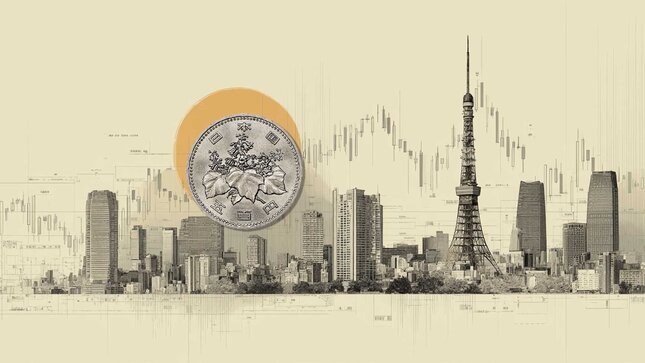1. Do I understand this idea?
Every investment or trading decision rests on an idea. On one extreme, perhaps the signal to buy or sell something is generated by an algorithm (a set of rules); even in this case, the algorithm is built on an idea that something should happen in the market after a set of conditions are fulfilled. On the other hand, maybe you are trading off a hunch or a gut feel.Ideas can come from many places: are you following someone on social media? Is your idea based on fundamental, macro, or technical ideas? I think the key questions to ask are do you really, fully, understand the idea and were it comes from? (For instance, many people trade-off of dimly understood beliefs about fundamentals. If you are taking a 2 day trade based on “fundamentals”, you probably have a logical disconnect.) Also, is your idea reproducible?
Is this an idea you can execute, in some form, over and over? Good investment and trading programs are built around consistency, and, for this to happen, the idea must be something you can repeat.
2. Do I understand how the market should move if I am right?
This is important, and not as simple as it seems. You think something is going up so you buy, but when should the market move? How long is it ok if the market is flat? What if it goes down a little bit, or a lot? What would be strongest confirmation of your idea? What might mean the idea has become consensus and is now vulnerable to reversal–when is good, too good?Another variation of this question is asking if your position will properly capture the market move. In some cases, this is simple: you think the Nasdaq futures should go up beyond the high of the day in the 30 minutes, so you buy Nasdaq futures–simple. But what if you think volatility is going to increase in stocks and you’re trading the VIX futures, or a leveraged ETP, or options on one of the above? Do you truly understand how those products will respond to market movements? What if you think Delta Airlines should do better than its competitors? Is buying DAL the right play there?
3. Do I understand my risk?
No, not do you know where your stop is; I mean do you really, truly understand your risk? What is the worst that can happen, and what is the probability of that worst case outcome? (As I wrote in my book, we have terrible intuition about very rare and very serious risks–this is one reason that risk management is so difficult.) Once we’ve accepted that worst-case risk, we should then begin to think about less serious risks. Do not just assume that your risk is your stop; think deeper.4. What might I be missing?
This is hard one, because the question you’re asking is what do you not know, and what do you not know that you don’t know! Many people find it challenging to think along these lines, but this is one way that we grow as traders and investors. Always ask what you don’t know. Always be learning.5. What mistakes might I be making?
More and more, the investment literature focuses on cognitive mistakes. There are important lessons here, but, to me, one of the most important is that things are “wrong” with the way we perceive patterns, risk, and probability. These errors are fundamental part of human perception and cognition, and you aren’t going to change them–you cannot fix most cognitive biases, so how do you work with them? How do you minimize their ability to harm you? Asking these questions can help you protect yourself from some serious and dangerous errors.These questions will not solve every problem you have, but they can point you in the right direction and help you work toward solutions to some of your most serious challenges.
Editors’ Picks

EUR/USD: US Dollar to remain pressured until uncertainty fog dissipates Premium
The EUR/USD pair lost additional ground in the first week of February, settling at around 1.1820. The reversal lost momentum after the pair peaked at 1.2082 in January, its highest since mid-2021.

Gold: Volatility persists in commodity space Premium
After losing more than 8% to end the previous week, Gold (XAU/USD) remained under heavy selling pressure on Monday and dropped toward $4,400. Although XAU/USD staged a decisive rebound afterward, it failed to stabilize above $5,000.

GBP/USD: Pound Sterling tests key support ahead of a big week Premium
The Pound Sterling (GBP) changed course against the US Dollar (USD), with GBP/USD giving up nearly 200 pips in a dramatic correction.

Bitcoin: The worst may be behind us
Bitcoin (BTC) price recovers slightly, trading at $65,000 at the time of writing on Friday, after reaching a low of $60,000 during the early Asian trading session. The Crypto King remained under pressure so far this week, posting three consecutive weeks of losses exceeding 30%.

Three scenarios for Japanese Yen ahead of snap election Premium
The latest polls point to a dominant win for the ruling bloc at the upcoming Japanese snap election. The larger Sanae Takaichi’s mandate, the more investors fear faster implementation of tax cuts and spending plans.
RECOMMENDED LESSONS
Making money in forex is easy if you know how the bankers trade!
I’m often mystified in my educational forex articles why so many traders struggle to make consistent money out of forex trading. The answer has more to do with what they don’t know than what they do know. After working in investment banks for 20 years many of which were as a Chief trader its second knowledge how to extract cash out of the market.
5 Forex News Events You Need To Know
In the fast moving world of currency markets where huge moves can seemingly come from nowhere, it is extremely important for new traders to learn about the various economic indicators and forex news events and releases that shape the markets. Indeed, quickly getting a handle on which data to look out for, what it means, and how to trade it can see new traders quickly become far more profitable and sets up the road to long term success.
Top 10 Chart Patterns Every Trader Should Know
Chart patterns are one of the most effective trading tools for a trader. They are pure price-action, and form on the basis of underlying buying and selling pressure. Chart patterns have a proven track-record, and traders use them to identify continuation or reversal signals, to open positions and identify price targets.
7 Ways to Avoid Forex Scams
The forex industry is recently seeing more and more scams. Here are 7 ways to avoid losing your money in such scams: Forex scams are becoming frequent. Michael Greenberg reports on luxurious expenses, including a submarine bought from the money taken from forex traders. Here’s another report of a forex fraud. So, how can we avoid falling in such forex scams?
What Are the 10 Fatal Mistakes Traders Make
Trading is exciting. Trading is hard. Trading is extremely hard. Some say that it takes more than 10,000 hours to master. Others believe that trading is the way to quick riches. They might be both wrong. What is important to know that no matter how experienced you are, mistakes will be part of the trading process.
The challenge: Timing the market and trader psychology
Successful trading often comes down to timing – entering and exiting trades at the right moments. Yet timing the market is notoriously difficult, largely because human psychology can derail even the best plans. Two powerful emotions in particular – fear and greed – tend to drive trading decisions off course.


